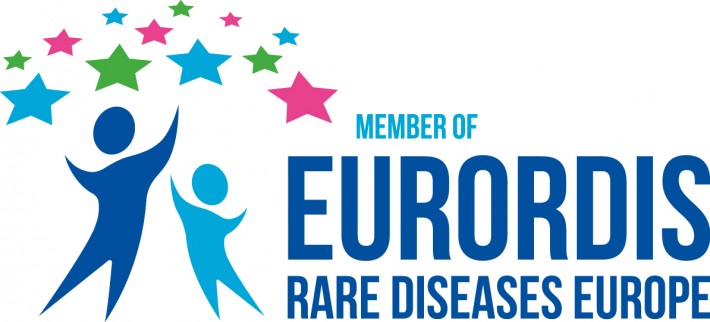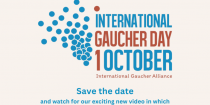Press release from EURORDIS
The rare disease community calls for additional doses of the COVID-19 vaccine to protect the most vulnerable and extra measures to vaccinate more European citizens
13 October 2021, Paris – EURORDIS-Rare Diseases Europe is calling on national policymakers to consider a booster
doses for people whose immune systems have not fully responded to the initial vaccination, including people living with a rare disease, and additional measures to encourage more citizens to get vaccinated against COVID-19.
People with moderate or severe primary immunodeficiency, including many transplant recipients, dialysis patients,
people living with cancer and some rare diseases, may not build the same level of immunity to the two-dose vaccines
compared to those who are not immunocompromised.
In this regard, it is crucial that a third or even a fourth dose of the COVID-19 vaccine, when appropriate, be regarded
by all national authorities across Europe as an extension of the primary vaccination course for people with weakened
immune systems. Even though some countries have already put such a system in place, EURORDIS expresses
concerns that too few benefited from this measure.
Consideration for an additional dose of the COVID-19 vaccine should also be given to carers and health care providers in direct contact with people with moderate or severe immune conditions. For patients who remain vulnerable to the virus after the third or fourth doses, EURORDIS urges health authorities to consider the administration of monoclonal antibodies as pre-exposure or post-exposure prophylaxis, as has already been decided in some countries on a compassionate basis, pending the final evaluation of evidence. This, however, should not affect EU countries’ commitment to donate 200 million doses of vaccines to COVAX and AVAT.
With epidemiological models, estimating a winter surge in Europe by December 2021, accelerating the daily pace of
primary vaccinations is of particular importance. A high proportion of vaccination in the general population would
constitute solid protection for those who respond less to vaccines or cannot be vaccinated. More than 63 percent of Europeans have been vaccinated against COVID-19, making the EU one of the global leaders in vaccination coverage. However, when taking a closer look, most of Eastern Europe is clearly lagging far behind, with five countries having less than 40% of their population fully protected.
As the Delta variant is now circulating at a high speed in the region, an increase in intensive care bed occupancy and COVID-19 related mortality as well as mobility restrictions in the EU can be experienced as early as January 2022. This could only further the East-West divide and undermine the hard-earned progress. While the EU distribution mechanism continues to function and to deliver doses needed, the demand side is lacking.
There is an urgent need for EU countries, especially those countries falling behind with the primary vaccination course, to revise their approach to vaccination, taking extra measures to encourage more people to get vaccinated to close the East-West vaccination gap and bring the pandemic down. Countries across the continent should work together, sharing best practices and providing doses of COVID-19 vaccine to those in need.
Considering the increasing contagiousness of the virus, we need to ensure that all Europeans are protected,
regardless of where they live. European countries, collectively, need to provide additional doses to those at high risk of severe COVID-19, all the while accelerating the vaccine rollout and sharing doses with countries facing barriers to accessing vaccines.
Reference list:
Benedikt S et al., Hemodialysis Patients Show a Highly Diminished Antibody Response after COVID-19 mRNA
Vaccination Compared to Healthy Controls, medRxiv 2021.03.26.21254259; doi: https://doi.org/10.1101/2021.03.26.21254259
Boyarsky BJ, Werbel WA, Avery RK, et al. Immunogenicity of a Single Dose of SARS-CoV-2 Messenger RNA Vaccine
in Solid Organ Transplant Recipients. JAMA. Published online March 15, 2021.doi:10.1001/jama.2021.4385
Boyarski BJ et al., Antibody response to a single dose of SARS-CoV-2 mRNA vaccine in patients with rheumatic and
musculoskeletal diseases Free. ttp://dx.doi.org/10.1136/annrheumdis-2021-220289
EURORDIS-Rare Diseases Europe
EURORDIS-Rare Diseases Europe is a unique, non-profit alliance of 974 rare disease patient organizations from 74
countries that work together to improve the lives of the 30 million people living with a rare disease in Europe.
By connecting patients, families, and patient groups, as well as by bringing together all stakeholders and mobilizing
the rare disease community, EURORDIS strengthens the patient voice and shapes research, policies, and patient
services. Follow @eurordis or see the EURORDIS Facebook page. For more information, visit eurordis.org.
Rare diseases
The European Union considers a disease as rare when it affects less than 1 in 2,000 citizens. Over 6,000 different rare diseases have been identified to date, affecting an estimated 30 million people in Europe and 300 million worldwide. Due to the low prevalence of each disease, medical expertise is rare, knowledge is scarce, care offering is inadequate, and research is limited. Despite their great overall number, rare disease patients are the orphans of health systems, often denied diagnosis, treatment, and the benefits of research.










